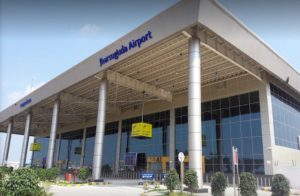The new Euston HS2 station will have 4 less platforms than originally planned, costing £5 billion.
HS2 Euston station was originally planned to have 10 platforms.

The bustling city of London is gearing up for a major upgrade in its train stations with the construction of the new HS2 station right next to the existing Euston train station. This highly anticipated project has recently been confirmed by the government, but not without some surprising changes. After years of uncertainty and debates, the extension of the HS2 line from Old Oak Common to Euston station was finally given the green light in October during the budget announcement.
However, it has now been revealed that the new station will only have six platforms for HS2 trains, instead of the previously planned ten. This information was first reported by the Standard, and has been confirmed by Lord Hendy, the rail minister. During a Commons session on Monday, Lord Hendy stated that the new HS2 Euston station will have six platforms, with the capacity to accommodate up to 10 HS2 trains per hour.
He also mentioned that no decisions have been made yet on the train services that will run when HS2 opens, and this will be subject to future consultations. This unexpected change has raised concerns among rail campaigners, who fear that this could have a negative impact on passenger capacity. Gareth Dennis, a rail engineer and author, expressed his concerns, stating that passengers will lose out if Euston is not built to unlock its maximum potential.
He further added that the rest of the HS2 project will be built eventually, and it is crucial to build a spacious and resilient station in London to ensure the smooth operation of local and commuter services in the Midlands and the North for decades to come. Comparing it to other busy London stations, London Liverpool Street boasts 19 platforms, while London Paddington has 14 platforms. The current Euston station, serving National Rail trains, has 16 platforms and is the 10th busiest railway station in the UK.
In comparison, the Eurostar high-speed trains at London St. Pancras International occupy only five platforms. This news comes after previous plans in 2022, before the Euston leg was put on hold in March, showed a ten-platform design.
The new station was initially supposed to have 11 platforms, but this was reduced to ten in October 2021. In contrast, Old Oak Common station, also part of the HS2 project, will have six platforms for HS2 trains and eight for conventional trains. A spokesperson for the Department of Transport stated that taking HS2 to Euston is a crucial step in realizing its contribution to the national economic growth.
They also mentioned that they are exploring various options for the station, including funding and will provide further details soon. In the Autumn budget, Rachel Reeves confirmed that the HS2 line will indeed run to Euston, putting an end to years of uncertainty following the cancellation of the northern legs by the previous government. The HS2 line is now being built from Old Oak Common to Euston station via a tunnel, and work has already begun on digging the 4.5-mile underground tunnel.
However, the start date for services is yet to be confirmed. There has been much speculation about whether the conventional Euston station and the new HS2 hub will be integrated into one roof. According to the Standard, Lord Hendy has confirmed that there will be one concourse for all travelers.
This decision has been welcomed by campaigners like Mr. Dennis, who have been advocating for one station to accommodate both conventional rail and HS2 services. Camden Council has also been pushing for an integrated station that would bring together plans for HS2, Network Rail, and Underground stations.
In the meantime, Network Rail has announced measures to improve the passenger experience at the current Euston train station, following concerns over passenger safety and a notice from the rail regulator. They have also announced that the huge station concourse screens, which were previously used as advertising boards, will now be utilized to display train information. The projected costs for the HS2 project have seen a significant increase, as stated in the latest progress report published by the Department for Transport.
The estimated costs have now reached a staggering £66 billion, up from the previous projection of £49 billion to £57 billion. The overall spend to date, including the since scrapped phase two, stands at £32.8 billion.










